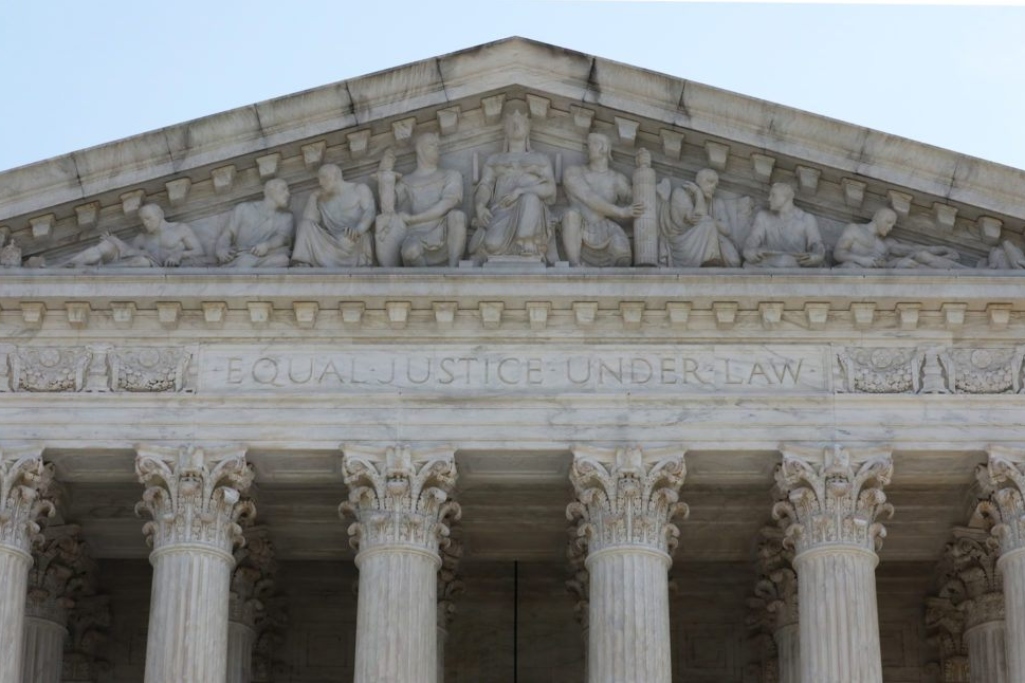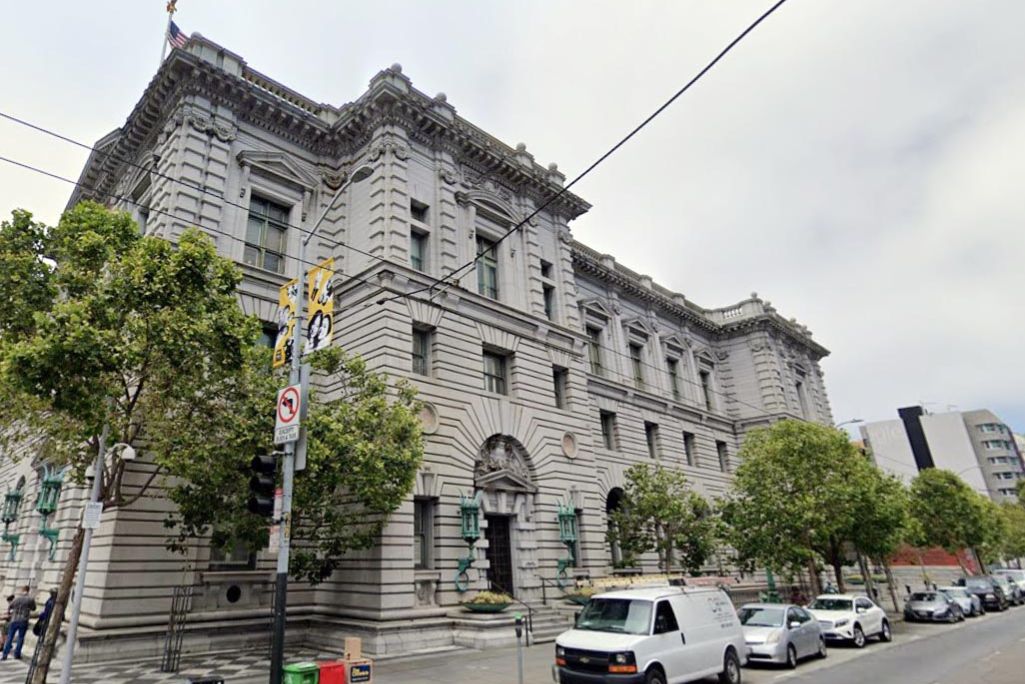
The U.S. Supreme Court.
WASHINGTON (BP) — The Supreme Court heard oral arguments on Wednesday (April 2) in a case that will decide the fate of South Carolina’s effort to defund Planned Parenthood by barring abortion clinics in the state from participating in Medicaid programs.
The case, Medina v. Planned Parenthood South Atlantic, will decide whether the Medicaid Act’s “any-qualified-provider provision,” which gives beneficiaries the right to choose their provider, includes providers that perform abortions. Federal law currently prohibits Medicaid from funding abortions except in cases of rape or incest, or to save the life of the mother.
While advocates on both sides gathered outside of the Supreme Court Wednesday morning, the arguments inside the building primarily focused on whether this language in the Medicaid Act constitutes “clear, rights-creating language” in terms of allowing citizens the choice to receive medical services from abortion providers.
In arguments lasting nearly two hours, attorneys answered questions from the justices about this language, and whether beneficiaries have the right to sue over the right to select their own medical provider.
South Carolina is represented in the case by Alliance Defending Freedom. The state’s lawyer, John Bursch, outlined several reasons this Medicaid language does not constitute “rights-creating” language including its lack of specificity.
“In our federalist system, the legitimacy of Congress’s exercise of its spending power depends on a state’s knowing acceptance of funding conditions,” he said. “Congress did not use clear rights-creating language in the ‘any qualified provider’ provision.”
Nicole Saharsky, lawyer for the defense, argued the statute does constitute rights language, even though it does not contain the word, and citizens do have the right to sue if this right is violated.
She argued the High Court has previously established that “magic words” aren’t required in such language and “if the individual can’t sue, this provision will be meaningless.”
In his closing rebuttal, Bursch provided counter points to those arguments.
“My friend, Ms. Saharsky, said the provision is mandatory because the state must do these things. That’s not what it says. It says that the plan must provide these things,” Bursch said.
“My friend admitted to Justice Gorsuch that a statute can require the provision of a benefit yet not have rights-creating language. That’s this case. The fact that the 12 of us can have such a robust conversation about whether this statute is mandatory or not, whether it’s rights-creating or not, demonstrates that the rights-creating language is ambiguous, not clear and explicit.
“And if there is any ambiguity in this context, the state has to win because it’s not being put on notice of when it might be sued. At the end of the day, putting states on clear notice requires explicit rights-creating language, as this Court has said. Because the ‘any qualified provider’ provision lacks that language, we ask that you reverse.”
Ethics & Religious Liberty Commission (ERLC) Vice President Miles Mullin spoke to the importance of this case in a post-Roe America.
“Today’s oral arguments present a critical opportunity for the Supreme Court to uphold South Carolina’s right to enforce its pro-life laws and protect taxpayer funds from being used to support abortion providers like Planned Parenthood,” Mullin said.
“As we saw in the aftermath of Dobbs, some states are making laudable efforts to protect preborn children, provide legitimate healthcare for mothers and foster a culture of life. South Carolina’s efforts to exclude abortion providers from its Medicaid program reflect those efforts.”
Other states that have enacted laws blocking Planned Parenthood from receiving Medicaid funding include Arkansas, Missouri, Mississippi and Texas.
“Medicaid dollars are intended to fund clinics that provide real healthcare to women and their preborn children,” Mullin continued. “Despite what Planned Parenthood would have us believe, abortion is not health care. It is the taking of an innocent life. States should not be compelled to fund predatory organizations like Planned Parenthood that are committed to taking preborn lives by targeting vulnerable mothers instead of caring for them. As the ERLC urged the Supreme Court in our brief, South Carolina’s executive order must be upheld in order for vulnerable, preborn lives to be protected.”
The ERLC filed an amicus brief supporting South Carolina in February. The brief explains that by receiving Medicaid funds to perform other services, taxpayers are essentially subsidizing Planned Parenthood’s main focus of performing abortions.
“Planned Parenthood is responsible for more than a third of all induced abortions performed in the United States each year,” the brief states. “A large percentage of its revenue comes from offering abortions. Even as its abortion numbers have risen year after year, the medical services it offers have sharply declined – as have its adoption referrals.”
The brief further argues that Planned Parenthood clinics are not needed to provide prenatal care to expecting mothers, and essentially offer no focus on adoption or continuing with pregnancy.
It reiterates that Planned Parenthood’s main function is performing abortions despite misleading statistics that make it seem as though other services such as birth control and cancer screenings, and not abortion, were the main reasons for patients’ visits.
“Planned Parenthood’s South Carolina locations offer almost no prenatal care for mothers who choose to continue their pregnancies,” the brief states.
“This is nothing new. Planned Parenthood has led the abortion industry from the beginning. It is responsible for the deaths of millions of the preborn children that South Carolina seeks to protect.”
The story of the case began in 2018 when South Carolina Gov. Henry McMaster issued an executive order instructing the state’s Department of Health and Human Services to bar abortion clinics from participating in Medicaid.
McMaster gave abortion clinics the option to receive Medicaid funding if they stopped performing abortions, which Planned Parenthood declined.
South Carolina has two Planned Parenthood facilities, one in Charleston and the other in Columbia. McMaster said he did not want any taxpayer funding to go toward abortions and asked the state’s HHS department to deem these clinics unqualified to provide family planning services such as birth control.
Planned Parenthood disagreed with this assessment and has even made specific efforts to make it easier for Medicaid recipients, usually low-income patients, to utilize its services. Some of these efforts include same-day appointments and extended clinic hours.
One such Medicaid recipient is Julie Edwards, who went to a South Carolina Planned Parenthood for birth control and has said she desires to return to the clinic to receive other care in the future.
Edwards and Planned Parenthood filed a lawsuit arguing South Carolina’s ban on Planned Parenthood receiving Medicaid funds violates a Medicaid provision allowing any patient who is eligible for Medicaid to seek health care from any “qualified” provider.
A federal district court in South Carolina sided with Edwards and Planned Parenthood and blocked the state’s ban. The district court’s ruling was then upheld by the 4th Circuit Court of Appeals.
This prompted South Carolina to take the case to the Supreme Court, asking the justices whether Planned Parenthood has the right to sue on the matter.
South Carolina argues that multiple federal courts of appeal have subjected states to lawsuits on this issue that Congress never intended, which is why the Supreme Court must intervene.
After the High Court considered South Carolina’s petition at nine consecutive conferences, the justices finally agreed to take up the case on Dec. 18, 2024.
The case was originally filed as Kerr v. Planned Parenthood South Atlantic. Planned Parenthood and Edwards are named as defendants, while then South Carolina Director of Health and South Carolina Health and Human Services Robert Kerr was named as the petitioner.
Since the case was filed with the Supreme Court, Kerr is no longer in this role, and Eunice Medina now serves as director of South Carolina’s Department of Health and Human Services.
South Carolina officials filing amicus briefs in the case include McMaster, Senators Lindsey Graham and Tim Scott as well as Representative Ralph Norman.
A decision in the case is expected before the end of the High Court’s term in June.
(EDITOR’S NOTE — Timothy Cockes is news editor at New Orleans Baptist Theological Seminary.)


